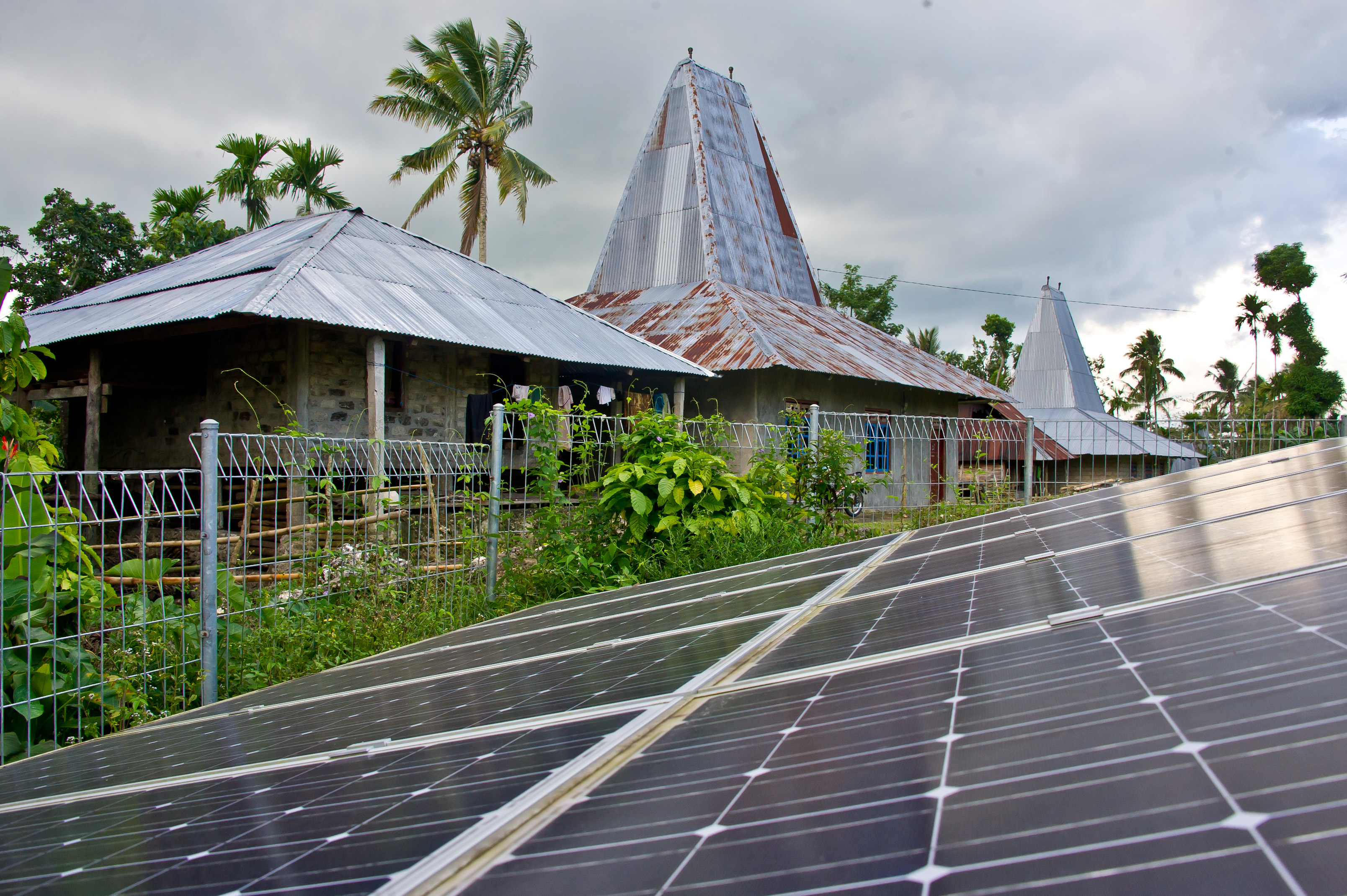World Bank wants developing nations to go renewable, but are they committed?
To curb climate change and ensure quality of life for the people living in poverty, large institutions have to lead the way
Chelsey B. Coombs • February 10, 2015

Renewable energy has come to some developing nations, like Indonesia where these solar panels were installed, but is the World Bank doing enough? [Image Credit: Flickr user Asian Development Bank]
In 2000, members of the United Nations voted unanimously to approve the Millennium Development Goals: eight objectives for helping the world’s poorest people that the U.N. hoped would be accomplished by 2015. The seventh of the eight is “to ensure environmental sustainability,” which cites reducing energy use and carbon dioxide emissions per capita as part of this plan.
Now a month into 2015, the U.N. reports “major trends that threaten environmental stability continue.” While some areas have seen huge progress — including a 50 percent reduction in the number of people in extreme poverty — a recently published World Bank study showed that though climate change will affect everyone, it will hit the world’s poorest the hardest and even reverse some of the gains that have been made since 2000.
After the World Bank, the U.N.’s financial arm, published that report, the bank’s president Jim Yong Kim said it will focus on clean energy and support coal development projects only in “circumstances of extreme need.” But these lofty goals don’t match the World Bank’s actions.
According to a report from April 2014 by a group called Oil Change International, the World Bank has funded $21 billion in fossil fuel projects since 2008. The same report also showed that fossil fuel exploration funding has increased, with $1 billion going to processes like seismic surveys and exploratory drilling.
That’s a ton of money going toward non-sustainable energy resources that could instead be applied toward cleaner energy research and infrastructure expansion.
But putting the climate in danger isn’t the only problem the World Bank sets itself up for with these policies. The report also said the organization could load impoverished countries with even more debt by “locking developing countries into loan commitments for resources that will likely become stranded assets if policies are implemented to reduce fossil fuel use.”
Although Kim said the World Bank is committed to renewable energy, he said he “believe[s] very strongly that the poorest countries have a right to energy and that we not ask these energy-poor countries to wait until there are ways of ensuring that solar and wind power can provide the kind of base load that all countries need in order to industrialize.”
It may seem infeasible to expect nations with the fewest financial resources to make an overnight switch away from dirtier forms of energy, especially as these nations often have large reserves of oil, gas and coal that remain untapped. But even in those countries, changes are underway. Another report by Bloomberg World Energy Finance showed that many developing and newly industrialized nations are increasingly turning to renewable energy sources like solar. For example, China’s renewable energy share is 14 percent of its total energy share. India’s is 15 percent.
To ensure a better future for us all, especially for the very poor, large organizations like the United Nations and the World Bank need to invest wisely in renewable energy instead of pouring money into short-term solutions that will lead to long-term destruction.